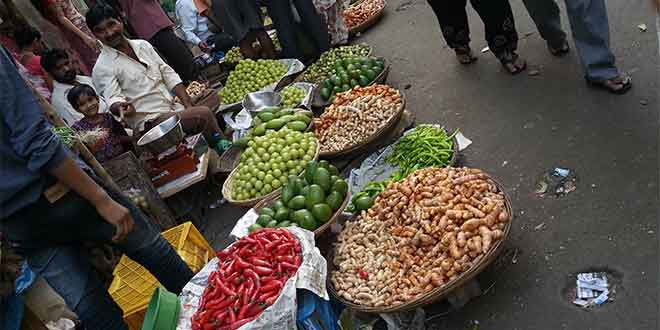
Poisonous Vegetables Surface in Karachi
The residents of Karachi are compelled to use poisonous fruits and vegetables available in the market. According to reports thousands acres in Karachi are irrigated by reservoirs of polluted water coming out of gutters or industrial waste water.
Vegetables being grown and sold in certain part of the cities contain very high level of toxic metal content such as lead, iron copper and cadmium posing a serious health risk to consumers.
According to one report, samples of beet, carrot, reddish, turnip, potato and sweet potato and their leaves collected from SITE (Shershah), Malir, Saddar (Empress Market) showed high concentration of all metals except Zinc.
The study examined for trace of metal content in vegetables over a period of three years to check the effect of industrial waste and gutter water on cultivation of root vegetables. Sample of sand and the level of acidity, alkalinity, hardness and dissolved oxygen were also examined in the samples.
The research also highlighted the fact that the use of industrial wastewater for cultivation was on the rise as Pakistan faced shortage of water.
The research was conducted at the chemistry department of Federal Urdu University of Arts, Science and Technology by Dr Kousar Yasmeen, who earned a doctorate on the basis of her research and currently teaches at the university, under the supervision of Dr Qamrul Haq and Dr Mohammad Ali Versiani.
The relation between contaminated food chain and various diseases is well documented and there is dire need for awareness as well as action on part of the government to take steps to discourage the use of industrial wastewater for cultivation.
High levels of cadmium, copper, chromium, iron and manganese have been linked to kidney failure, weakened bones, cancer, goiter, diarrhea, vomiting, stomach cramps, fatigue, loss of weight, high blood pressure while excess of lead and zinc may cause disruption in the nervous system, anemia, brain damage, miscarriage, increase in cholesterol level and reduction in the metabolism of copper and iron.
Food is the second major cause of cancer after tobacco and one third of cancer cases could be prevented by eating uncontaminated vegetables.

